#georgetown (2011)
Explore tagged Tumblr posts
Text
Raúl Esparza and Joe Mazzello in Georgetown (2011)
217 notes
·
View notes
Photo

GO 209 Hauls through CN Credit. Georgetown, ON May 4, 2011
12 notes
·
View notes
Text
A Photo of Nancy Pelosi, Rediscovered Decades Later
In 1963, the politician Thomas D’Alesandro Jr. submitted a photo to appear with The New York Times’s announcement of his daughter’s engagement.

When the daughter of Thomas D’Alesandro Jr., a prominent politician in Baltimore, got engaged in 1963, the family sent her photo to The New York Times to accompany an engagement announcement in the Society pages. That 23-year-old woman, Nancy D’Alesandro, would become better known in the decades that followed by her married name: Nancy Pelosi. Both Ms. Pelosi and her father, Mr. D’Alesandro, a Democrat who served as the mayor of Baltimore from 1947 to 1959, have files in the Morgue, The Times’s repository of newspaper articles, photographs and other archival materials. When searching for Mr. D’Alesandro’s photo file, the caretaker of the Morgue found a file for Nancy D’Alesandro. That’s where the engagement photo was stored. The photo was published on June 1, 1963, above an announcement with the headline “Miss D’Alesandro Is Future Bride of Paul F. Pelosi.” Mr. Pelosi, per the announcement, was a graduate of Georgetown University and worked for the First National City Bank of New York (now Citibank). Ms. D’Alesandro, the announcement said, was a graduate of Trinity College (now Trinity Washington University) in Washington, D.C.
I always picture Nancy Pelosi as the elderly matriarch of the House of Representatives. It's fascinating for me to see her as a young woman, with a circa 1963 bouffant hairdo.
It's interesting that this photo was initially lost because it was filed under "Nancy D'Alessandro." No one back in 1963 probably could have pictured young Nancy becoming the first woman Speaker of the House, a position she would hold for a total of 8 years (from 2007-2011, and from 2019-2023). Nancy has also been viewed by many as one of the most formidable Speakers in American history.

#nancy pelosi#former speaker of the house#1964 photo#first woman speaker of the house#engagement announcement#the new york times#john otis
41 notes
·
View notes
Text
Chris Dodd
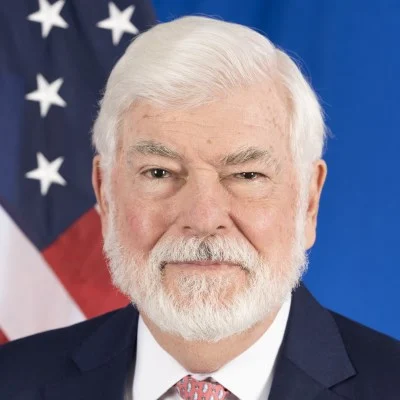
Physique: Average Build Height: 5′9½″ (1.77 m)
Christopher John Dodd (born May 27, 1944-) is an American lobbyist, lawyer, and Democratic Party politician who served as a United States senator from Connecticut from 1981 to 2011. The the longest-serving senator in Connecticut's history, Dodd served as Chairman of the Senate Banking Committee from 2007 until his retirement from politics. In 2006, Dodd ran for the Democratic nomination for President of the United States, but eventually withdrew after running behind several competitors. Dodd then served as chairman and chief lobbyist for MPAA from 2011 to 2017. In 2018, Dodd returned to the practice of law, joining the firm Arnold & Porter.
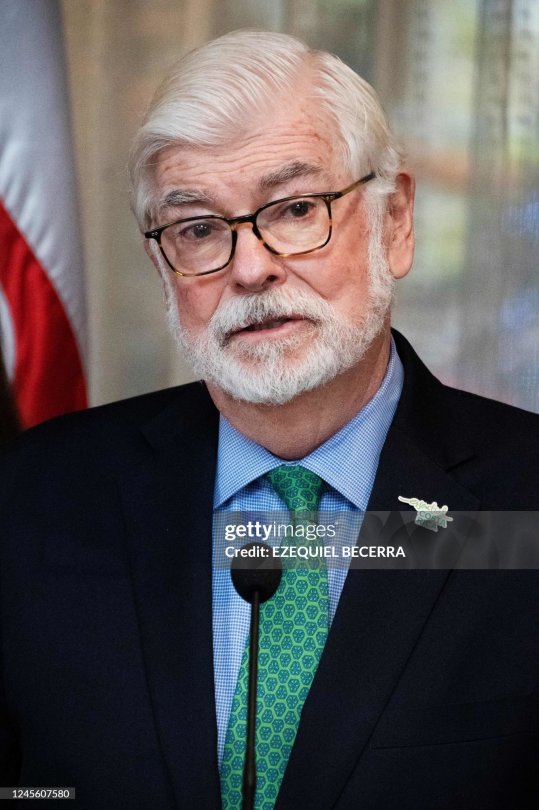
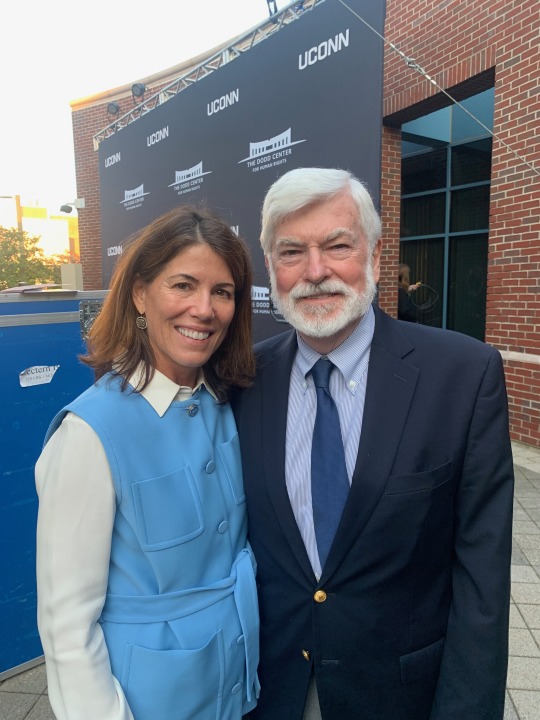
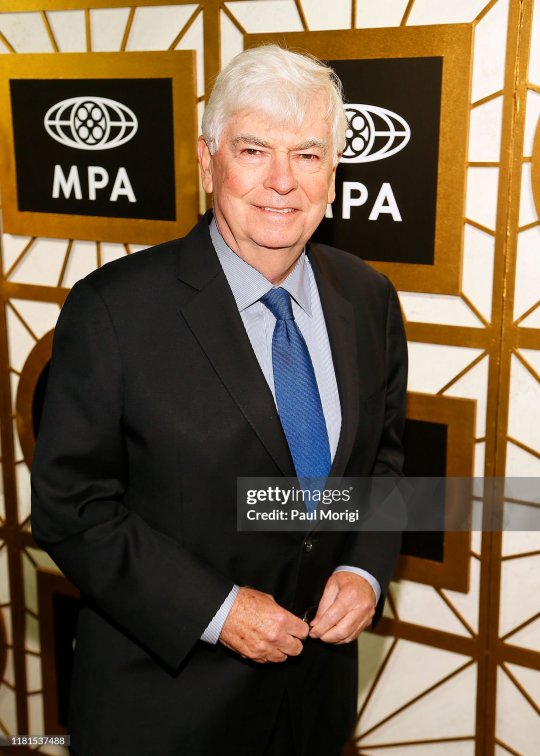
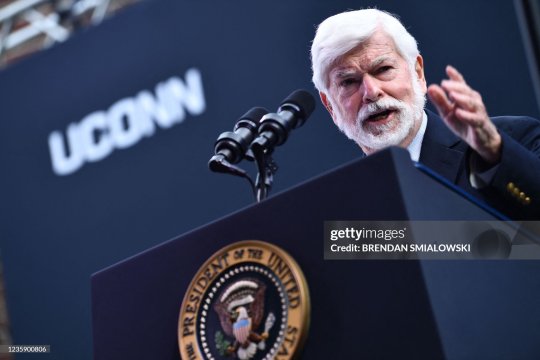
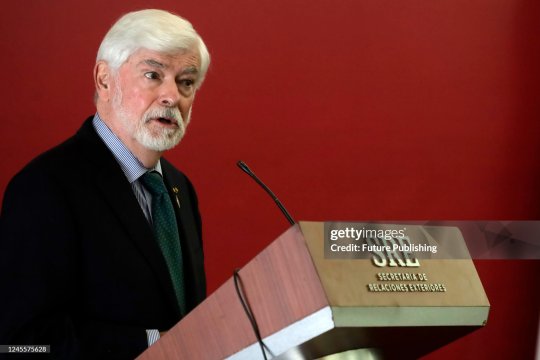
The handsome, silver-haired Connecticut native and a graduate of Georgetown Preparatory School in Bethesda, Maryland, and Providence College. He served in the Peace Corps for two years prior to entering the University of Louisville School of Law, and during law school concurrently served in the United States Army Reserve before running for office.
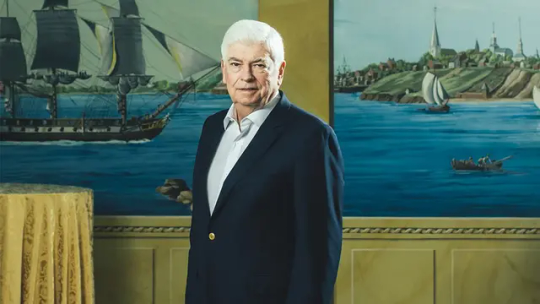
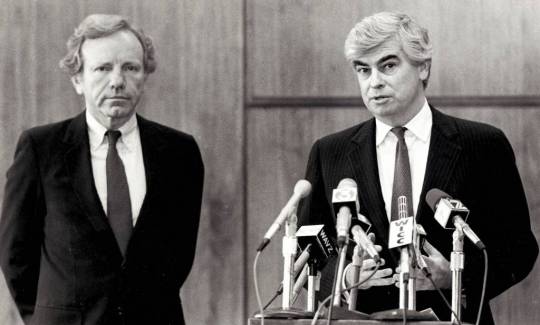
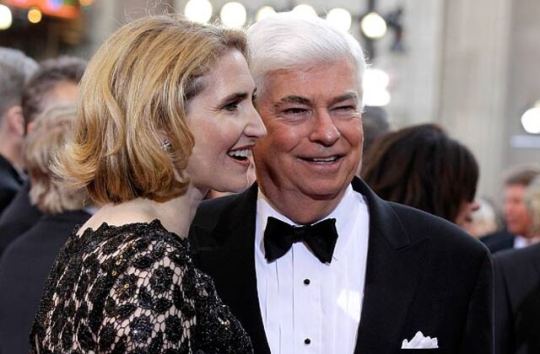
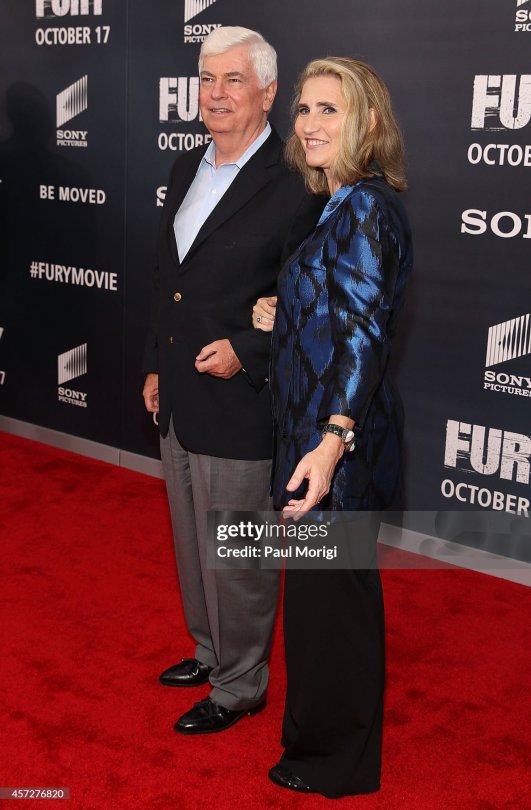
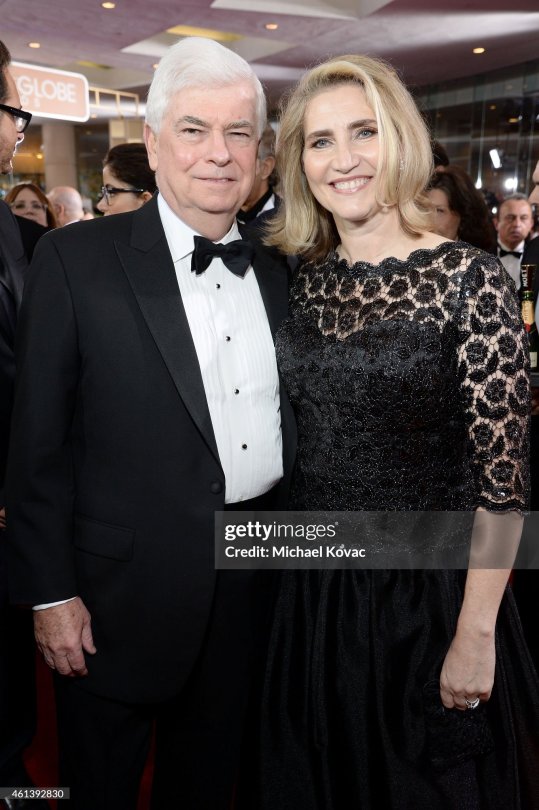
Twice married, first in 1970 to 1982. Afterwards, he dated at different times Bianca Jagger and Carrie Fisher, among others. Wait.. he banged Princess Leia? Respect. Apparently, he was Ted Kennedy's wingman too. Now you know Dodd must have been in some pussy along side Kennedy. Eventually in 1999, Dodd settled down, marrying for the second time and the couple has two daughters.
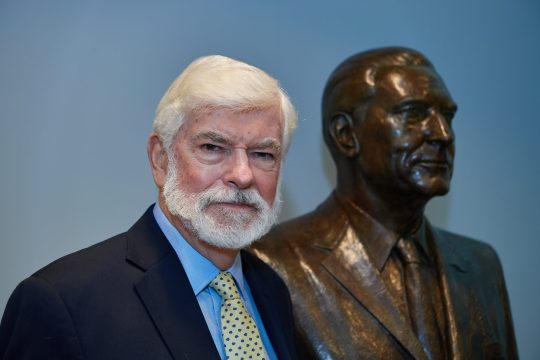
54 notes
·
View notes
Text

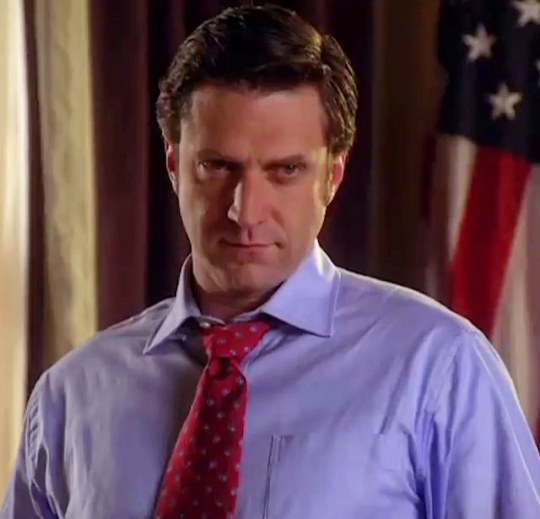

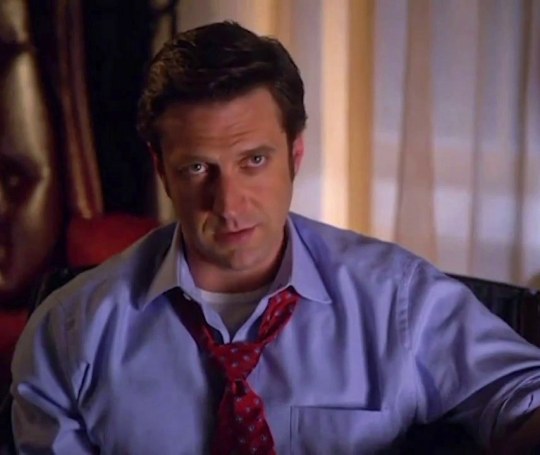

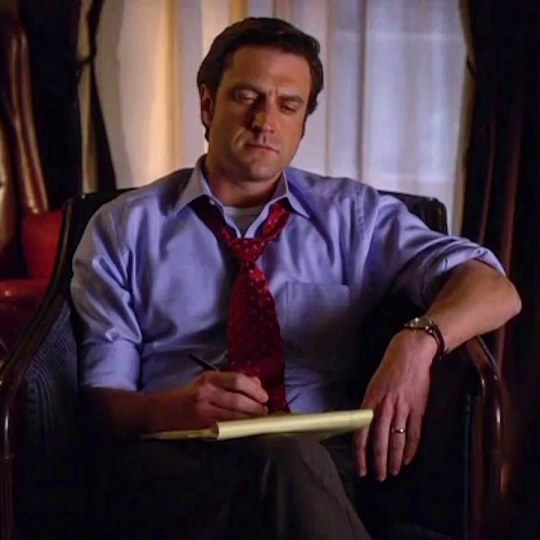


Raúl Esparza in the unaired pilot of Georgetown, 2011.
Many thanks to the goddess @adrianna-m-scovill for allowing me to take screens.
#raul esparza#raúl esparza#raul esparza character#Thank you#screenshoot#my screencaps#feel free to use#no credit needed
120 notes
·
View notes
Text
U.S. daily precipitation records tied/broken 1/2/2025
Arapahoe National Forest, Colorado: 0.6" (previous record 0.5" 2003) Chalk Mt. summit, Colorado: 0.4" (also 0.4" 2004) Copper Mt. summit, Colorado: 0.4" (also 0.4" 1994) Fraser, Colorado: 0.38" (previous record 0.28" 2004) Georgetown, Colorado: 0.21" (previous record 0.14" 1959) Hoosier Pass summit, Colorado: 0.5" (previous record 0.3" 2004) James Peak Wilderness, Colorado: 0.6" (also 0.6" 2004) Rocky Mountain National Park, Colorado: 0.5" (also 0.5" 2011) San Isabel National Forest, Colorado: 0.4" (previous record 0.3" 1994) Atlanta Peak summit, Idaho: 0.9" (previous record 0.8" 1998) Banner Pass summit, Idaho: 1.1" (previous record 0.9" 1998) Big Creek Pass summit, Idaho: 0.9" (previous record 0.7" 1994) Bitterroot National Forest, Idaho: 0.9" (previous record 0.5" 1997) Boise National Forest, Idaho: 1.3" (previous record 0.9" 1997) Galena Pass summit, Idaho: 0.7" (previous record 0.5" 2006) Magic Mt. summit, Idaho: 0.7" (previous record 0.5" 2009) Payette National Forest, Idaho: 1.4" (previous record 1.2" 2003) Salmon National Forest, Idaho: 0.4" (also 0.4" 2009) Sawtooth National Forest, Idaho: 1" (previous record 0.9" 1997) Secesh Peak summit, Idaho: 0.7" (also 0.7" 2009) Wallowa National Forest, Idaho: 0.8" (previous record 0.6" 2003) Rock Island, Illinois: 1.8" (previous record 1.18" 1873) Baker, Louisiana: 1.66" (previous record 1.57" 1996) Corinna, Maine: 1.1" (previous record 1.03" 1987) Rockport, Maine: 1.6" (previous record 1.05" 1982) Rifle River State Recreation Area, Michigan: 1" (previous record 0.56" 1965) Beaverhead National Forest, Montana: 0.3" (also 0.3" 2009) Bitterroot National Forest, Montana: 0.4" (also 0.4" 2020) Custer National Forest, Montana: 0.6" (also 0.6" 2009) Lewis & Clark National Forest, Montana: 0.4" (also 0.4" 1996) Unincorporated Summit County, Utah: 0.4" (also 0.4" 2017) Uinta National Forest, Utah: 0.5" (also 0.5" 2006) Bighorn National Forest, Wyoming: 0.3" (previous record 0.2" 2018) Custer National Forest, Wyoming: 0.3" (also 0.3" 2009) Medicine Bow National Forest, Wyoming: 0.6" (also 0.6" 2004) Parker Peak summit, Wyoming: 0.7" (previous record 0.5" 2009) Shoshone National Forest, Wyoming: 0.4" (also 0.4" 1998) Unincorporated Sublette County, Wyoming: 0.35" (previous record 0.32" 2023) Wind River Reservation, Wyoming: 0.3" (also 0.3" 2006) Yellowstone National Park, Wyoming: 0.6" (previous record 0.5" 1993)
#Storms#U.S.A.#U.S.#Colorado#1990s#1950s#Idaho#Illinois#1870s#Louisiana#Maine#1980s#Michigan#1960s#Montana#Utah#Wyoming#Crazy Things#Awesome
2 notes
·
View notes
Text
“Voting is widely thought to be one of the most important things a person can do. But the reasons people give for why they vote (and why everyone else should too) are flawed, unconvincing, and sometimes even dangerous. The case for voting relies on factual errors, misunderstandings about the duties of citizenship, and overinflated perceptions of self-worth. There are some good reasons for some people to vote some of the time. But there are a lot more bad reasons to vote, and the bad ones are more popular.
(…)
In all of American history, a single vote has never determined the outcome of a presidential election. And there are precious few examples of any other elections decided by a single vote. A 2001 National Bureau of Economic Research paper by economists Casey Mulligan and Charles Hunter looked at 56,613 contested congressional and state legislative races dating back to 1898. Of the 40,000 state legislative elections they examined, encompassing about 1 billion votes cast, only seven were decided by a single vote (two were tied). A 1910 Buffalo contest was the lone single-vote victory in a century's worth of congressional races. In four of the 10 ultra-close campaigns flagged in the paper, further research by the authors turned up evidence that subsequent recounts unearthed margins larger than the official record initially suggested.
The numbers just get more ridiculous from there. In a 2012 Economic Inquiry article, Columbia University political scientist Andrew Gelman, statistician Nate Silver, and University of California, Berkeley, economist Aaron Edlin use poll results from the 2008 election cycle to calculate that the chance of a randomly selected vote determining the outcome of a presidential election is about one in 60 million. In a couple of key states, the chance that a random vote will be decisive creeps closer to one in 10 million, which drags voters into the dubious company of people gunning for the Mega-Lotto jackpot. The authors optimistically suggest that even with those terrible odds, you may still choose to vote because "the payoff is the chance to change national policy and improve (one hopes) the lives of hundreds of millions, compared to the alternative if the other candidate were to win." But how big does that payoff have to be to make voting worthwhile?
(…)
In their seminal 1993 book Decision and Democracy: The Pure Theory of Electoral Preference (Cambridge University Press), University of Virginia philosopher and reason Contributing Editor Loren Lomasky and his co-author, Geoffrey Brennan, offer an alternative theory of what drives voters. But first they offer a methodology for calculating the value of a vote. On their account, the expected utility of a vote is a function of the probability that the vote will be decisive, delivering gains (to the individual or society as a whole) if the preferred candidate wins. The probability of casting the decisive vote decreases slowly as the size of the voting pool gets larger, but it drops dramatically when polls show that one candidate has even a slight lead. Which means that in a presidential election, where the number of voters is about 120 million and one candidate is usually polling a point or two ahead on Election Day, you're screwed.
In his brilliant 2011 book The Ethics of Voting (Princeton University Press), on which I have relied heavily for this article, Georgetown University philosopher Jason Brennan (no relation to Geoffrey Brennan) applied the Lomasky/Brennan method to a hypothetical scenario in which the victory of one candidate would produce additional GDP growth of 0.25 percent in one year. Assuming a very close election where that candidate is leading in the polls only slightly and a random voter has a 50.5 percent chance of casting a ballot for her, the expected value of a vote for that candidate is $4.77 x 10 to the ?2,650th power. That's 2,648 orders of magnitude less than a penny.
(…)
Those figures reflect 2006 GDP figures and 2004 voting totals, but it almost doesn't matter what batch of reasonable numbers you plug into the equation. Say you think victory is worth 10 or 100 or 1,000 times more than the roughly $33 billion that 0.25 percent of GDP amounts to. Say the polls show a gap of two percentage points between the candidates. In any plausible scenario, the expected utility of your vote still amounts to approximately bupkes. A vote for a third-party candidate pushes the figure into even more infinitesimal territory.
(…)
In October 2000, Harvard economist Gregory Mankiw penned a column for Fortune called "Why Some People Shouldn't Vote." During his years-long stint as a columnist for the magazine, this was the only article the editors refused to run. The column, which he published on his personal blog years later, suggests that "the next time a friend of yours tells you he's not voting, don't try to change his mind."
Mankiw's argument draws on a 1996 article by economists Timothy Feddersen of Northwestern University and Wolfgang Pesendorfer of Princeton University that cites the phenomenon of "roll off"—people who make it all the way inside the polyester curtains on Election Day and then leave some blanks on their ballots—to illustrate the point that people who believe themselves ill-informed routinely choose not to vote, thereby increasing the quality of voters who actually pull the lever for one side or the other. There is some additional evidence for this claim: Education is one of the two best predictors of voter turnout (the other is age). Better-educated people are much more likely to vote, which suggests that the pool of voters is better informed and more qualified to make election-related judgments than the pool of nonvoters.
"A classic argument for why democracies need widespread public education is that education makes people better voters," Mankiw writes. "If this is true, then the less educated should show up at the polls less often. They are rationally delegating the decision to their better educated neighbors."
What Mankiw doesn't go on to say, perhaps because he fears insulting his readers, is that people aren't particularly good at knowing whether or not they are well-informed. Many people who follow politics closely hold views that are dangerous and wrong (see George Mason University economist Bryan Caplan's October 2007 reason cover story "The 4 Boneheaded Biases of Stupid Voters"). Even if everyone who had the slightest suspicion that he was not knowledgeable enough to vote stayed home on Election Day, millions of people would still be casting ill-informed votes.
(…)
Encouraging more ignorant people to vote is not just pointless, argues Jason Brennan; it's morally wrong. There is no duty to vote, but many people may have a duty not to vote. Boosting turnout among citizens who are young, uneducated, or otherwise less likely to be engaged—the primary targets of get-out-the-vote campaigns—is likely to have the unintended consequence of encouraging people to fail in that duty.
To explain why we might worry about casting an uninformed vote even when no particular vote is likely to be decisive, Brennan conjures this terrifying thought experiment: Imagine you come across a firing squad about to kill an innocent child. Assume all the bullets will strike at the same time and that there's nothing you can do to stop them. You are invited to be the 101st member of the squad. What do you say? Brennan posits a framework to deal with this kind of hypothetical, the "clean hands principle," which states that "one should not participate in collectively harmful activities when the cost of refraining from such activities is low."
None of this is to suggest that the government should test voters or use some other legal means to limit voting. Instead, this is a private moral concern for each voter. If you believe your vote is likely to be ill-informed or that a particular race is likely to yield an unfair, unjust, or otherwise bad outcome, you should refrain from participating in a collectively harmful activity, thus keeping your hands clean. Get-out-the-vote campaigns promote precisely the kind of morally condemnable ignorant voting we should be discouraging.
(…)
In his 1851 book Social Statics, the English radical Herbert Spencer neatly describes the rhetorical jujitsu surrounding voting, consent, and complaint, then demolishes the argument. Say a man votes and his candidate wins. The voter is then "understood to have assented" to the acts of his representative. But what if he voted for the other guy? Well, then, the argument goes, "by taking part in such an election, he tacitly agreed to abide by the decision of the majority." And what if he abstained? "Why then he cannot justly complain…seeing that he made no protest." Spencer tidily sums up: "Curiously enough, it seems that he gave his consent in whatever way he acted—whether he said yes, whether he said no, or whether he remained neuter! A rather awkward doctrine this." Indeed.
(…)
Ah, now we're getting somewhere. Maybe people vote not because of what voting can accomplish, but because they like to vote. They like the message that voting sends about who they are (e.g., the kind of person who cares about poverty, or fiscal responsibility, or what his neighbors think).
Many people like to be perceived as altruists, for example. Voting is one of the cheapest forms of altruism. If you (rightly) believe that the expected material payoff of your vote is near zero, then it's easy enough to vote in a way that maximizes your halo rather than your bottom line. "Voting sociotropically," Jason Brennan writes, "is cheaper and easier than volunteering at a soup kitchen or giving money to Oxfam."
A 2009 survey of 569 professors conducted by philosophers Eric Schwitzgebel of the University of California at Riverside and Josh Rust of Stetson University reinforces this view: 88 percent said they considered voting in public elections to be morally good. In fact, when asked to rank different acts, the professors reported that they considered voting to be on par with regularly donating blood and giving 10 percent of one's income to charity.
Loren Lomasky and Geoffrey Brennan theorize that voting is best understood as an expressive act. Communicating preferences at the ballot box is something people do for its own sake, not a duty they perform or a selfish bid for material gain.
(…)
Bryan Caplan takes the idea a step further. Perhaps, he suggests, voting is more like cheering while watching the same game from your recliner in a darkened living room. If you really try, you can still tell an (ultimately unsatisfying) story about why your actions matter in the rest of the world. After all, your viewership of the game might show up in the television ratings, which boosts the team's advertising revenue. Of course, you're probably not a Nielsen household, so you may not show up at all in the metrics that the team's owners can see. Which leaves solitary game watchers right there with the voters: The main payoff is that you can show up at work the next day and say you did it.
So what's wrong with that? Individual cases of expressive voting in large elections are just as unlikely to affect the outcome of the election as other kinds of voting. But the fact of widespread expressive voting explains why elections are silly season. Politicians offer themselves up as opportunities for expressive voting, as aggregations of easily comprehensible slogans rather than as avatars of sensible policy. Ignorant expressive voters, even rationally ignorant ones, may be committing immoral acts, as Jason Brennan argues.
All of which is a pretty steep price for an "I Voted" sticker.”
“The choice in the elections is between corporate and oligarchic power. Corporate power needs stability and a technocratic government. Oligarchic power thrives on chaos and, as Steve Bannon says, the “deconstruction of the administrative state.” Neither are democratic. They have each bought up the political class, the academy and the press. Both are forms of exploitation that impoverish and disempower the public. Both funnel money upwards into the hands of the billionaire class. Both dismantle regulations, destroy labor unions, gut government services in the name of austerity, privatize every aspect of American society, from utilities to schools, perpetuate permanent wars, including the genocide in Gaza, and neuter a media that should, if it was not controlled by corporations and the rich, investigate their pillage and corruption. Both forms of capitalism disembowel the country, but they do it with different tools and have different goals.
Kamala Harris, anointed by the richest Democratic Party donors without receiving a single primary vote, is the face of corporate power. Donald Trump is the buffoonish mascot for the oligarchs. This is the split within the ruling class. It is a civil war within capitalism played out on the political stage. The public is little more than a prop in an election where neither party will advance their interests or protect their rights.
George Monbiot and Peter Hutchison in their book “Invisible Doctrine: The Secret History of Neoliberalism,” refer to corporate power as “housebroken capitalism.” Housebroken capitalists need consistent government policies and fixed trade agreements because they have made investments that take time, sometimes years, to mature. Manufacturing and agriculture industries are examples of “housebroken capitalism.”
(…)
Monbiot and Hutchison refer to oligarchic power as “warlord capitalism.” Warlord capitalism seeks the total eradication of all impediments to the accumulation of profits including regulations, laws and taxes. It makes its money by charging rent, by erecting toll booths to every service we need to survive and collecting exorbitant fees.
The political champions of warlord capitalism are the demagogues of the far right, including Trump, Boris Johnson, Giorgia Meloni, Narendra Modi, Victor Orban and Marine Le Pen. They sow dissension by peddling absurdities, such as the great replacement theory, and dismantling structures that provide stability, such as the European Union. This creates uncertainty, fear and insecurity. Those that orchestrate this insecurity promise, if we surrender even more rights and civil liberties, that they will save us from phantom enemies, such as immigrants, Muslims and other demonized groups.
The epicenters of warlord capitalism are private equity firms. Private equity firms such as Apollo, Blackstone, the Carlyle Group and Kohlberg Kravis Roberts, buy up and plunder businesses. They pile on debt. They refuse to reinvest. They slash staff. They willfully drive companies into bankruptcy. The object is not to sustain businesses but to harvest them for assets, to make short-term profit. Those who run these firms, such as Leon Black, Henry Kravis, Stephen Schwarzman and David Rubenstein, have amassed personal fortunes in the billions of dollars.
(…)
The wreckage private equity firms and the oligarchs orchestrate, is taken out on workers who are forced into a gig economy and who have seen stable salaries and benefits eradicated. It is taken out on pension funds that are depleted because of usurious fees, or are abolished. It is taken out on our health and safety. Residents of nursing homes, for example, owned by private equity firms, experience 10 percent more deaths — not to mention higher fees — because of staffing shortages and reduced compliance with standards of care.
Private equity firms are an invasive species. They are also ubiquitous. They have acquired educational institutions, utility companies, and retail chains, while bleeding taxpayers hundreds of billions in subsidies which are made possible by bought-and-paid-for prosecutors, politicians, and regulators. What is particularly galling is that many of the industries seized by private equity firms — water, sanitation, electrical grids, hospitals — were paid for out of public funds. They cannibalize the nation, leaving behind shuttered and bankrupt industries.
(…)
The housebroken capitalists are represented by politicians such as Joe Biden, Kamala Harris, Barack Obama, Keir Starmer and Emmanuel Macron. But “housebroken capitalism” is no less destructive. It pushed through the North American Free Trade Agreement (NAFTA), the greatest betrayal of the American working class since the 1947 Taft-Hartley Act, which placed crippling restrictions on union organizing. It revoked the Banking Act of 1933 (Glass-Steagall) which separated commercial banking from investment banking. Tearing down the firewall between commercial and investment banks led to the global financial meltdown in 2007 and 2008, including the collapse of nearly 500 banks. It pushed through the elimination of the Fairness Doctrine by the Federal Communications Commission under Ronald Reagan as well as the Telecommunications Act under Bill Clinton’s presidency, allowing a handful of corporations to consolidate control of media outlets. It destroyed the old welfare system, 70 percent of the recipients of whom were children. It doubled our prison population and militarized the police. In the process of moving manufacturing to countries such as Mexico, Bangladesh and China, where workers toil in sweatshops, 30 million Americans were subjected to mass layoffs according to figures compiled by the Labor Institute. Meanwhile, it piled up massive deficits — the federal budget deficit rose to $1.8 trillion in 2024, with total national debt approaching $36 trillion — and neglected our basic infrastructure, including electrical grids, roads, bridges and public transportation, while spending more on our military than all the other major powers on Earth combined.
These two forms of capitalism are species of totalitarian capitalism, or what the political philosopher Sheldon Wolin calls “inverted totalitarianism.” In each form of capitalism, democratic rights are abolished. The public is under constant surveillance. Labor unions are dismantled or defanged. The media serves the powerful and dissident voices are silenced or criminalized. Everything is commoditized from the natural world to our relationships. Grassroots and popular movements are outlawed. The ecocide continues. Politics is burlesque.
(…)
The Weimarization of the American working class is by design. It is about creating a world of masters and serfs, of empowered oligarchic and corporate elites and a disempowered public. And it is not only our wealth that is taken from us. It is our liberty. The so-called self-regulating market, as the economist Karl Polanyi writes in “The Great Transformation,” always ends with mafia capitalism and a mafia political system. A system of self-regulation, Polanyi warns, leads to “the demolition of society.”
If you vote for Harris or Trump — I have no intention of voting for any candidate who sustains the genocide in Gaza — you are voting for one form of rapacious capitalism over another. All the other issues, from gun rights to abortion, are tangential and used to distract the public from the civil war within capitalism. The tiny circle of power these two forms of capitalism embody, exclude the public. These are elite clubs, clubs where wealthy members inhabit each side of the divide, or at times go back and forth, but are impenetrable to outsiders.
The irony is that the unchecked greed of the corporatists, the housebroken capitalists, created a small number of billionaires who became their nemesis, the warlord capitalists. If the pillage is not halted, if we do not restore through popular movements control over the economy and the political system, then warlord capitalism will triumph. The warlord capitalists will cement into place neo-feudalism, while the public is distracted and divided by the antics of killer clowns like Trump.
I see nothing on the horizon to avoid this fate.
Trump, for now, is the figurehead of warlord capitalism. But he did not create it, does not control it and can easily be replaced. Harris, whose nonsensical ramblings can make Biden look focused and coherent, is the vacuous, empty suit the technocrats adore.
Pick your poison. Destruction by corporate power or destruction by oligarchy. The end result is the same. That is what the two ruling parties offer in November. Nothing else.”
“Yet, 79 years after he killed himself in a Berlin bunker, more than one in 10 (11 percent) of Americans believe the barbaric German tyrant leader had some 'good ideas'.
A DailyMail.com/J.L. Partners poll found that more than one in five (21 percent) of both Gen Z and black voters and 19 percent of Hispanic voters agreed with the statement.
The survey asked 1,000 likely voters whether they think Hitler had some 'good ideas' or if he was 'evil and had no redeeming features.'
77 percent said he was 'evil', 12 said they were 'unsure' and a surprising 11 percent believe he had some redeeming qualities.
When broken down by age group, 21 percent of those under the age of 29 said Hitler had good ideas, compared with 16 percent of those between the ages of 30 and 49, seven percent for voters between 50 and 64 and just five percent for those over 65.
Fourteen percent of Donald Trump supporters said Hitler had some positive aspects, compared to nine percent of Kamala Harris.
'If you need an example of the corrosive impact that social media can have on younger Americans' view of the world, this is it,' James Johnson, founder of J.L. Partners, told DailyMail.com of the startling results.
(…)
Earlier this month, TikTok was forced to remove AI-generated and translated videos of Hitler's speeches that had racked up more than one million views.
(…)

A Pew Research poll (https://www.pewresearch.org/religion/2020/01/22/what-americans-know-about-the-holocaust/) in 2020 found that while half of U.S. adults knew what the Holocaust was and when it happened, but less than 50 percent could answer how many Jews were killed and when Hitler came to power.
In December, a DailyMail.com found that one in five young Americans had a positive view of 9/11 mastermind and Al Qaeda founder Osama Bin Laden.
The alarming survey also found three in 10 Gen Z voters believe the views of the anti-Semitic terrorist leader who slaughtered thousands of innocent people were a ‘force for good'.
(…)
Another DailyMail.com poll from October 2023 found one in 10 voters under the age of 30 had a positive view of Hamas, despite the group's murderous attack on Israel that killed more than 1,300 men, women and children.”
2 notes
·
View notes
Text
Dr. Judith Roumani
La Dra. Judith Roumani es Directora del Instituto Judío de Pitigliano (Italia) y becaria de la Fundación Sosland. Obtuvo su doctorado en Literatura Comparada en la Universidad de Rutgers, Nueva Brunswick, Nueva Jersey. Habla inglés nativamente y tiene habilidades lingüísticas en francés, hebreo, italiano, ladino, portugués y español. Ha impartido conferencias sobre literatura sefardí en varias instituciones académicas, incluida la Reunión Anual de la Asociación de Lenguas Modernas (Boston) en enero de 2013 y el Centro para la Civilización Judía de la Universidad de Georgetown (Washington, DC) en 2011. Es fundadora y editora de la revista académica trimestral Horizontes Sefardíes. Durante su residencia en el Centro de Estudios Avanzados sobre el Holocausto, trabajó en su proyecto titulado "El Holocausto en la literatura sefardí: respuestas en prosa". Su investigación de beca se centró en las colecciones del Museo del Holocausto de literatura sefardí tanto publicada como inédita escrita durante y después del Holocausto, así como en las colecciones archivísticas del Museo sobre el trasfondo histórico de los sefardíes en el Holocausto. Dr. Roumani intentó arrojar luz sobre la destrucción de los sefardíes durante el Holocausto, un tema que ha sido ampliamente descuidado por la historia. Estuvo en residencia en el Centro Mandel desde el 1 de diciembre de 2013 hasta el 29 de febrero de 2014.

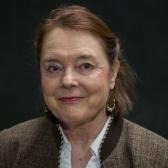
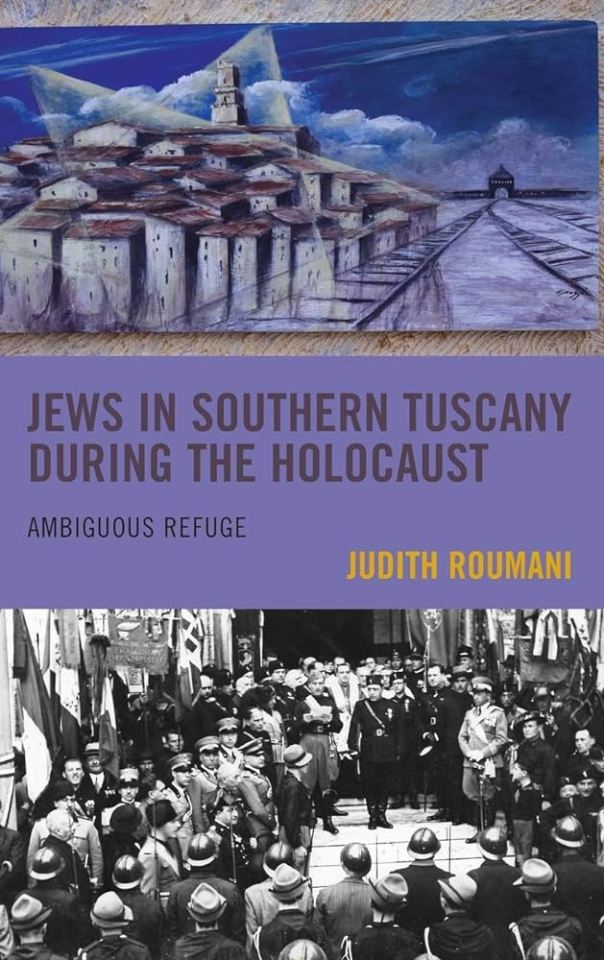
#pitigliano#italia#fundación sosland#judaísmo#judith roumani#doctora judith roumani#lenguas modernas#inglés#francés#hebreo#italiano#ladino#portugués#español#holocausto#shoah#shoá#dr. roumani#centro mandel#sefardí#cultura sefardí#sephardic#jewish#jew#judaism#jumblr
4 notes
·
View notes
Text
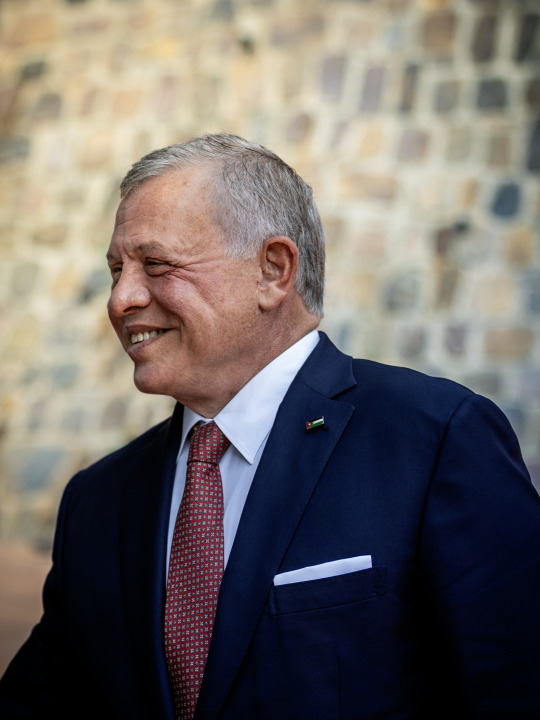

King Abdullah II of Jordan Marks 62nd Birthday
Jordan celebrates today, 30 January 2024, the 62nd birthday of King Abdullah II, the eldest son of the late King Hussein and Princess Muna. He was born in Amman on January 30, 1962. He ascended to the throne on February 7, 1999.
King Abdullah received his primary education at the Islamic Educational College in Amman and then attended St. Edmund's School in Surrey, England. For his secondary education, he went to Deerfield Academy and Eaglebrook School in the United States.
He enrolled at Sandhurst Royal Military Academy in the United Kingdom in 1980 and received his commission as a second lieutenant in 1981. King Abdullah joined the Jordan Armed Forces-Arab Army in 1982, rising through the ranks to lead the Royal Jordanian Special Forces and Special Operations.
In 1987, King Abdullah graduated from Georgetown University's School of Foreign Service in Washington, DC, with a Master's Degree in Foreign Service and completed an advanced research and study program in international affairs.
After returning to active military duty in 1989, he was promoted to Brigadier General in 1994 and appointed commander of the Royal Jordanian Special Forces and Special Operations.
King Abdullah married Queen Rania on June 10, 1993. They have four children: Crown Prince Hussein, Princess Iman, Princess Salma, and Prince Hashem.
On this significant occasion, His Majesty continues to lead the nation with unwavering effort, dedication, and resolve, driving a comprehensive renaissance for Jordan and its youth as the country moves into its second centennial.
The King is committed to a comprehensive modernization of the state's political, economic, and administrative structures to secure a prosperous future for Jordan and its people.
His Majesty actively engages with the nation's youth, men, and women, and dignitaries, personally inspecting living conditions across the kingdom and inaugurating numerous projects across all sectors.
King Abdullah II dedicates his efforts to maintaining Jordan as a beacon of development in a challenging region. This includes significant investments in human capital, combating terrorism and extremism, and tirelessly working to foster peace in the Middle East.
Despite Jordan's limited resources, King Abdullah II has kept the nation's doors open to millions of refugees, continuing the Hashemite tradition of hospitality to those in need.
His Majesty has been honored with several prestigious awards for his contributions to peace, interfaith harmony, and the protection of Islamic and Christian holy sites in Jerusalem under Hashemite Custodianship. These honors include the Peace of Westphalia Prize, the Templeton Prize in the United States, Italy's Lamp of Peace of St. Francis, and the Scholar-Statesman Award from the Washington Institute for Near East Policy.
King Abdullah II is also the author of "Our Last Best Chance: The Pursuit of Peace in a Time of Peril" (2011), outlining Jordan’s vision for resolving the Arab-Israeli conflict.
4 notes
·
View notes
Text
Ines & Isla: Timeline


@waterfallswords
1993-1999: United States (Washington D.C.)
Isla (Born December 1993):
Ines (Born September 1999):
1999-2002: England (London)
Isla (Age 5-8)
Ines (Age 0-3)
2002-2005: Japan (Tokyo)
Isla (Age 8-11)
Ines (Age 3-6)
2005-2007: Mexico (Mexico City)
Isla (Age 11-13)
Ines (Age 6-8)
2007-2010: Brazil (Brasilia)
Isla (Age 13-16)
Ines (Age 8-11)
2010-2013: France (Paris)
Isla (Age 16-18)
Ines (Age 11-14)
Isla returns to the U.S. in 2011 for her undergraduate studies at Georgetown University, spending summers in Paris.
2013-2014: United States (Washington D.C.)
Isla (Age 18-19): Freshman year at Georgetown University.
Ines (Age 14-15): Spends a year in Washington D.C.
2014-2016: Russia (Moscow)
Isla (Age 19-21): Sophomore and Junior years at Georgetown, with visits to Russia.
Ines (Age 15-17)
2016-2018: China (Beijing)
Isla (Age 21-23): Senior year at Georgetown and first year of her Master's at Oxford.
Ines (Age 17-19): Returns to the U.S. in 2017 to start her undergraduate studies at Georgetown University, spending summers in Beijing.
2018-2023: United States (Washington D.C.)
Isla (Age 23-29): Finishes her Master's at Oxford, then moves back to Washington D.C where she begins her career within politics.
Ines (Age 19-23): Sophomore and Senior year at Georgetown University.
New York as of November 2023, following their parents deaths in the September.
#musings. ines#ft isla#god bless chat gpt organizing stuff but me n naz thought about all this the other day#and idk#enjoy their culturally rich lives#the years might be kinda weird but suck my dick
6 notes
·
View notes
Text
Happy Birthday 🎂 🥳 🎉 🎈 🎁 🎊 To You
The Stunning But Also Wild & Intriguing Brunette Actress 👩 In Acting Today
Wilde was born Olivia Jane Cockburn in New York City on March 10, 1984. She grew up in the Georgetown neighborhood of Washington, D.C., while spending summers at Ardmore in Ireland. She attended Georgetown Day School in Washington, D.C., and Phillips Academy in Andover, Massachusetts, graduating in 2002. She derived her professional surname from Irish author Oscar Wilde, and began using it in high school to honor the writers in her family, many of whom used pen names. She was accepted to Bard College, but deferred her enrollment three times to pursue acting. She then studied at the Gaiety School of Acting in Dublin. For a short time, Wilde's family also had a house in Guilford, Vermont.
known professionally as Olivia Wilde, is an American actress, director and producer. She played Remy "Thirteen" Hadley on the medical-drama television series House (2007–2012), and has appeared in the films Tron: Legacy (2010), Cowboys & Aliens (2011), The Incredible Burt Wonderstone (2013), and The Lazarus Effect (2015). She made her Broadway debut in 2017 as Julia in 1984.
Her first film as a director, the teen comedy Booksmart (2019), received critical acclaim and won the Independent Spirit Award for Best First Feature. Her second directed feature, the thriller Don't Worry Darling, was released in 2022.
Please Wish This Stunning But Also Wild Brunette Actress Of Hollywood's Cinema 🎥 & TV 📺, A Very Happy Birthday 🎂 🥳 🎉 🎈 🎁 🎊
YOU SHOULD KNOW HER
SHE IS QUITE THE WILD 1 ON CAMERA 📷 & OFF
& SHE IS NOT TO BE TRIFELD BEHIND THE SCENES
THE 1 & THE ONLY
MS. OLIVIA JANE COOKBURN AKA OLIVIA WILDE 👩
HAPPY 40TH BIRTHDAY 🎂 🥳 🎉 🎈 🎁 🎊TO YOU MS. WILDE 👩 & HERE'S TO MANY MORE YEARS TO COME





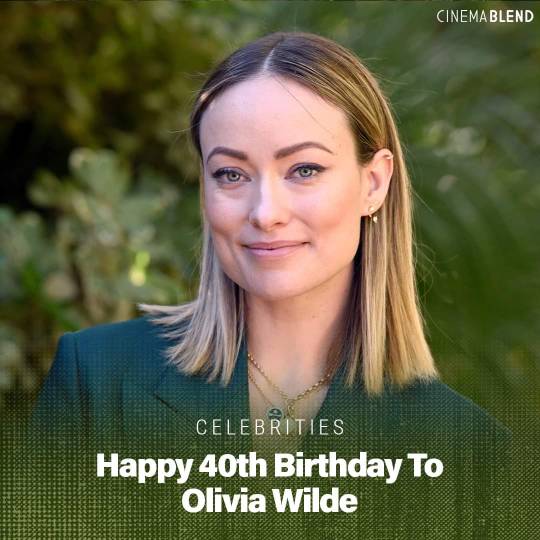
#OliviaWilde #HouseMD #TronLegacy #TronUprising #TronEvolution #Quorra #GhostbustersAfterlife #DontWorryDarling
#Olivia Wilde#House MD#Tron Legacy#Tron Uprising#Tron Evolution#Quorra#Ghostbusters Afterlife#Dont Worry Darling#Spotify
2 notes
·
View notes
Photo

GO 211 With Cabcar 218 arrive into Georgetown. September 22, 2011
3 notes
·
View notes
Text
'Download Rare Documents, Manuscripts, Books & Newspapers on the history of Palestine, Egypt, Lebanon, Turkey & the Ottoman Empire' - Palestine Nexus
Source: This link leads to the 'Sources' page within the 'Palestine Nexus'. The page itself contains brief information of a variety of written documents from Palestine, Egypt, Lebanon, Turkey and the Ottoman Empire. There are links within the page that lead to a google drive containing the mentioned documents. Some of the links contain the uploader's notes on the document. All of them appear to be compiled and uploaded by Zachary J. Foster, a historian and graduate from the University of Michigan (B.A., Sociology and Political Science, 2007), Georgetown University (M.A., Arab Studies, 2011), and Princeton University (Ph.D., Near Eastern Studies, 2017) Additional information: The Palestine Nexus is a website dedicated to providing information about Palestine. It links to their newsletter and podcast, 'Palestine, in your Inbox', the aforementioned 'Sources' page with the google drive documents along with a 'Maps' page that include historical maps on the middle east, and their online courses on Palestine and Israel. It is run by Zachary J Foster, Stephanie Alexandra (coordinator and music producer), and Alexandria Shaw (video editor).
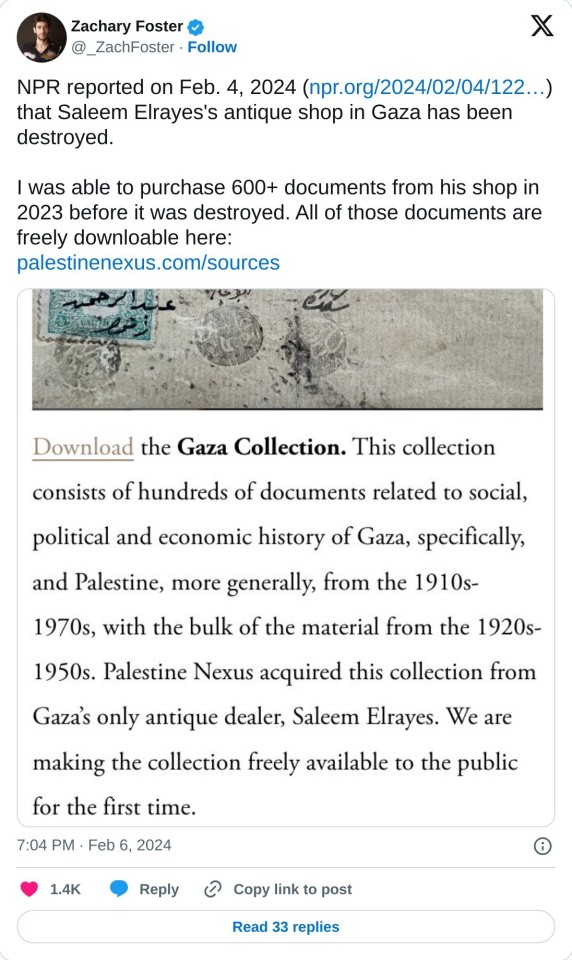


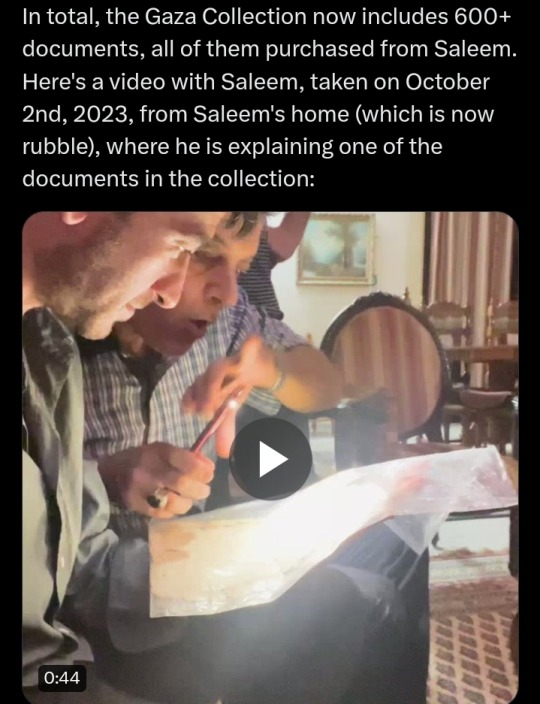
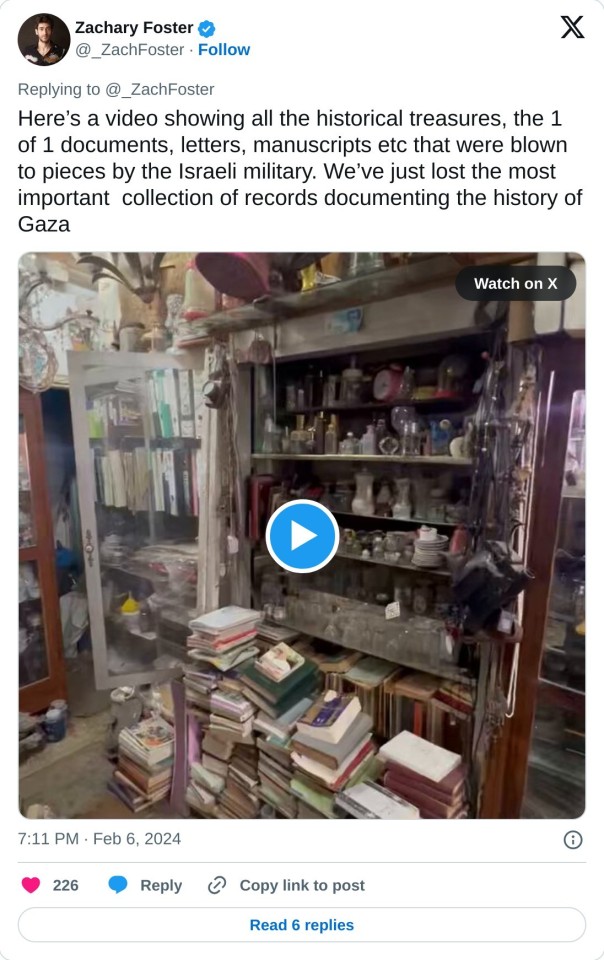
You can find the 600+ documents here. Help preserve Palestinian history
8K notes
·
View notes
Text
Steny Hoyer

Physique: Average Build Height: 6'
Steny Hamilton Hoyer (born June 14, 1939) is an American politician and retired attorney who has served as the U.S. representative for Maryland's 5th congressional district since 1981. He also served as House Majority Leader from 2007 to 2011 and again from 2019 to 2023. A Democrat, he was first elected in a special election on May 19, 1981, and is currently serving in his 22th term. From 2003 to 2023, Hoyer has been the second ranking Democrat in the House of Representatives behind Nancy Pelosi.





Born in New York City but grew up in Mitchellville, Maryland, Hoyer graduated from Suitland High School in Suitland, Maryland. In 1963, Hoyer received his B.A. degree magna cum laude and graduated Omicron Delta Kappa from the University of Maryland, College Park. He earned his J.D. degree from Georgetown University Law Center in 1966.





Lets see father of three, grandfather, great-grandfather and has been a widower since 97 after the death of his first wife, Judy Pickett Hoyer. A widower for 26 years, Hoyer married Elaine Kamarck in June 2023. I like to image Steny just smashing throughout those 26 years. And maybe, just maybe, he gave THE DICK a try. Yeah it might be delusional, though it can't hurt to try.

34 notes
·
View notes
Text

Minister Cornell William Brooks (January 29, 1961) was the President of the NAACP. He was born in El Paso, his family moved to Georgetown, South Carolina. He earned a BA in Political Science from Jackson State University. He earned an M.Div from Boston University School of Theology. He was awarded the Oxnam-Leibman Fellowship for outstanding scholarship. He earned a JD from Yale University Law School. He served a judicial clerkship on the US Court of Appeals for the Fourth Circuit. He became Executive Director of the Fair Housing Council. He supervised a regional program of fair housing testing and public education in the DMV.
He joined the Department of Justice in 1993. He secured a major settlement for victims of housing discrimination and filed the Federal government’s first lawsuit alleging discriminatory housing against a nursing home.
In 1999, he was appointed Senior Counsel to the Federal Communication Commission. He worked on legal matters promoting small business and media ownership. He directed the FCC’s Office of Communication Business Opportunities.
In 2007, he became president and chief executive officer of the New Jersey Institute for Social Justice. He focused the agency on criminal justice reform. He directed the Institute’s juvenile justice work that founded the first community court in New Jersey and reduced the state’s juvenile detention rates to historic lows. In 2011, he helped secure state laws that allowed released prisoners to re-enroll in Medicaid and made it possible for children of parents convicted of drug offenses to receive food stamps. He served on the board of the General Hospital in East Orange, New Jersey.
On May 16, 2014, the board of directors of the NAACP elected him president of the NAACP, he served (2014-17). As of August 2018, he is a Professor of the Practice of Public Leadership and Social Justice at Harvard Kennedy School. He is a fourth-generation minister in the AME Church. He was called to join the ministry while attending Jackson State University.
He is a member of Alpha Phi Alpha Fraternity. He is married to Janice Broome Brooks and they have two sons. #africanhistory365 #africanexcellence #alphaphialpha
0 notes
Text
Carl E. Landwehr: Pioneer in Cybersecurity and Trustworthy Computing
Carl E. Landwehr is a distinguished American computer scientist specializing in cybersecurity and trustworthy computing. His extensive research has significantly advanced the identification of software vulnerabilities, the development of high-assurance software, and the creation of architectures for intrusion-tolerant and multilevel security systems.
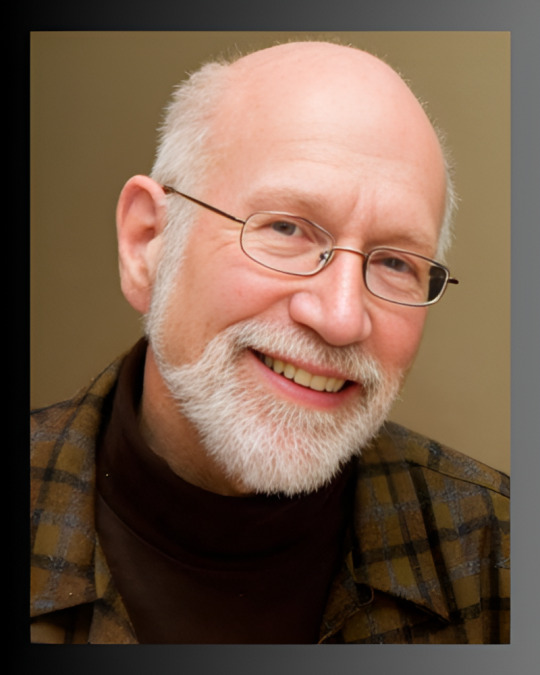
Early Life and Education
Born in Evanston, Illinois, Landwehr pursued his undergraduate studies at Yale University, earning a Bachelor of Science degree. He furthered his education at the University of Michigan, obtaining both Master of Science and Ph.D. degrees in Computer Science. During his tenure at Michigan, he contributed to the Merit Network, the longest-running regional computer network in the United States.
Professional Career
Landwehr's career encompasses significant roles in government, academia, and research institutions:
Naval Research Laboratory (1982–1999): As a supervisory computer scientist, he conducted pioneering research in computer security, focusing on formal models for computer security and the development of secure systems.
Mitretek Systems (1999–2003): Serving as a Senior Fellow, he continued his work in cybersecurity, contributing to the advancement of secure computing practices.
National Science Foundation (2001–2004, 2009–2011): Landwehr developed and led cybersecurity research programs, shaping the direction of national research initiatives in the field.
Intelligence Advanced Research Projects Activity (2005–2009): As a Division Chief, he oversaw research programs aimed at enhancing national security through advanced computing technologies.
In academia, Landwehr has held teaching and research positions at institutions including Purdue University, Georgetown University, Virginia Tech, the University of Maryland, and George Washington University. Notably, he served as a lead research scientist at the Cyber Security Policy and Research Institute at George Washington University.
Contributions and Achievements
Landwehr's work has been instrumental in organizing and advancing the field of formal models for computer security. His influential taxonomy for security flaws has been widely recognized, and he has been a proponent of developing "building codes" for software used in critical infrastructures, particularly in the domains of medical devices and power systems.
His contributions have been acknowledged through numerous awards:
National Cyber Security Hall of Fame Inductee (2012): Recognized for his pioneering work in cybersecurity. Wikipedia
IEEE Fellow (2013): Honored for his contributions to the field of computer security.
ACM SIGSAC Outstanding Contribution Award (2013): Awarded for his significant impact on the field of computer and communications security.
NSF Director's Award for Meritorious Service (2012): In recognition of his exceptional service in advancing national research initiatives.
Editorial and Advisory Roles
Landwehr has served as editor-in-chief of IEEE Security & Privacy Magazine and as an associate editor for several IEEE journals. He has participated in studies for the National Academy of Sciences and was a member of DARPA's Information Science and Technology Study Group, contributing to the strategic direction of research in information security.
Recent Endeavors
In recent years, Landwehr has continued to influence the field through consulting and advisory roles, assisting in the development and management of research programs in the science of security. He has been an advocate for establishing industry standards, such as "building codes," for the construction of software with significant security requirements, organizing workshops and promoting best practices in software security.
Carl E. Landwehr's extensive body of work continues to shape the fields of cybersecurity and trustworthy computing, bridging the gap between academic research and practical applications in securing information systems.
#Carl E. Landwehr#cybersecurity#trustworthy computing#computer science#software vulnerabilities#intrusion-tolerant systems#multilevel security#National Science Foundation
0 notes